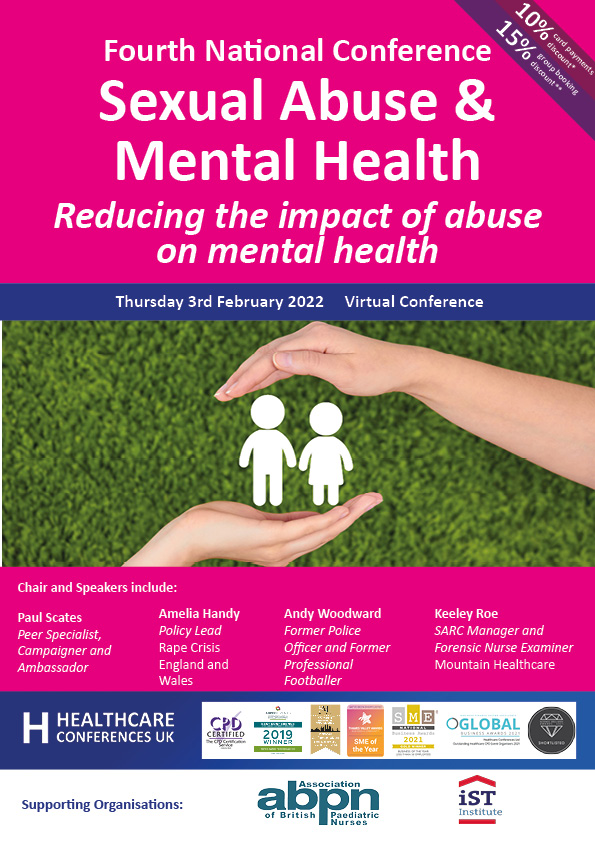Chair's Welcome and Introduction - Paul Scates
Peer Specialist, Campaigner and Ambassador
EXTENDED SESSION: Victim support and the police role in an effective sexual abuse pathway during and beyond Covid-19
Amelia Handy
Policy Lead
Rape Crisis England and Wales
• victim support and ensuring survivors can get the help they need, whenever they need it
• the impact of the Covid-19 pandemic and lockdown on sexual abuse and mental health
• the police and crime commissioner role, and governmental updates
• working in partnership with NHS England, local authorities, social care, education and the voluntary sectors to improve outcomes for both adults and children
- Amelia Handy Biography 0.01 MBDOCXfile
- Amelia Handy Abstract 0.01 MBDOCXfile
- Amelia Handy Slides 1.24 MBPPTXfile
Amelia highlighted in her talk that over a third, 36%, of people accessing their service includes those who were affected by childhood abuse
Amelia shared stories highlighting the impact of Covid-19 on victims and a rape crisis work.
Amelia commented that “a survivors journey is not liner”
The demand for rape crisis services has increased from 8,444 in 2019-20 to 9,947 to 2020-21 with the highest composition being for counselling.
Rape Crisis has increased their sessions of specialize support by 41% from 775,447 in 2019-20 to 1,094,467 in 2020-21
Victim support, mental health support and the male experience
 Duncan Craig OBE
Duncan Craig OBE
Chief Executive Officer &Trauma Informed Therapist
Survivors Manchester
• victim support and mental health support
• the male experience: silenced now surviving and thriving
Duncan introduces the Finklhor Model of Sexual Offending steps:
- Motivations to offend
- Overcome internal inhibitions
- Address external inhibitors
- Ensure victim's compliance
He places focus on the importance of remembering Step 4- Ensuring victim's compliance.
During the presentation, he poses the questions of why victims stay silent and gives examples of possible justifications as to why victims may not speak up. One of these could be the perpetrator might have met a need- made the victim feel special or treated as equal, a need that might not be met elsewhere.
Duncan discusses the impact of sexual offences on:
- Mental Health
- Physical Health
- Sexual Health
- Crime and Disorder

